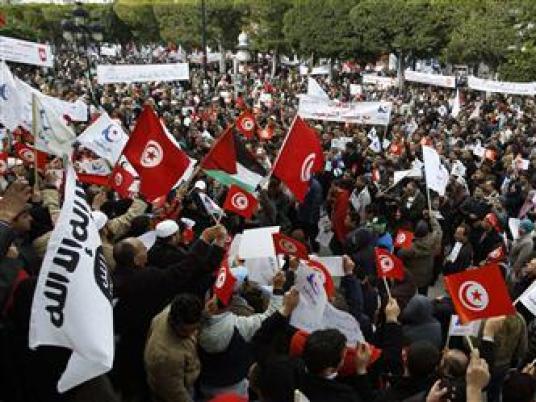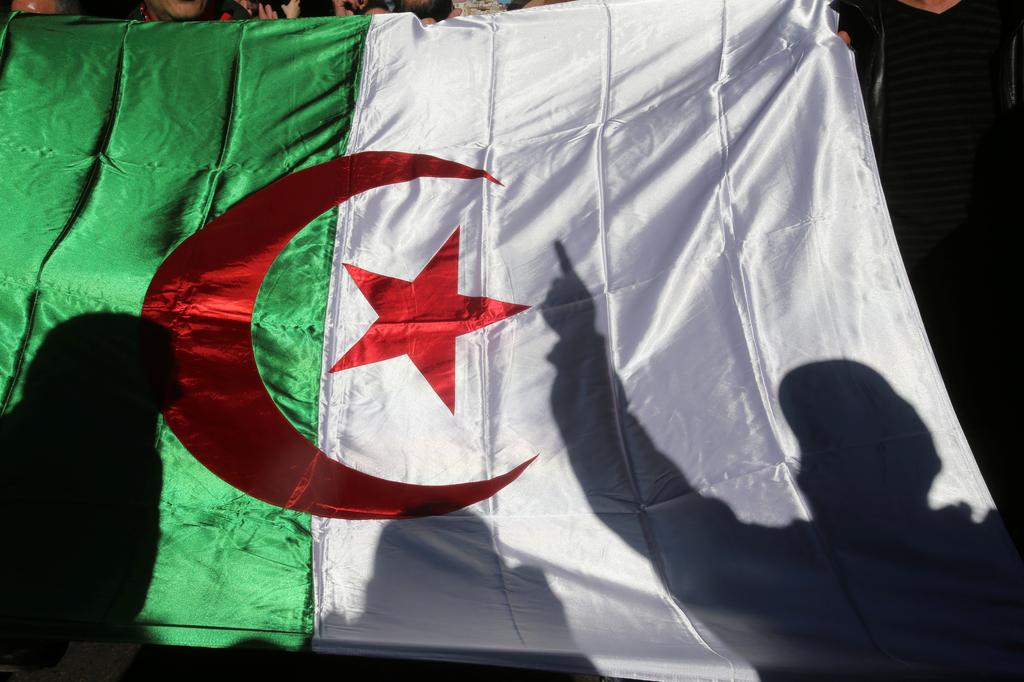
Tens of thousands of supporters of Tunisia's Islamist-led government marched in the capital on Saturday, one of the biggest in a series of pro-government and opposition rallies sparked by the assassination of a secular politician.
The 6 February killing of Chokri Belaid, a human rights lawyer and opposition leader, has thrown Tunisia into political turmoil two years after it staged the first of the "Arab Spring" revolts.
Violent protests, in which one policeman was killed, swept Tunisia after the assassination, with crowds attacking Ennahda offices in Tunis and elsewhere. Protesters shouted slogans against the Islamist party elected to power in 2011, including "We want a new revolution".
Islamists have launched counter rallies, up to now much smaller.
After Belaid's death, Prime Minister Hamadi Jebali promised to form a non-partisan, technocratic cabinet to run the country until an election could take place, despite complaints from within his own Ennahda party and a junior non-Islamist coalition partner that he had failed to consult them.
In the strongest reaction yet to the proposal, tens of thousands of Islamist demonstrators flocked to central Tunis on Saturday to support the legitimacy of the government.
"The initiative of prime minister is a coup against legitimacy, which gave power to Ennahda, that is a coup against the election results," said protester Omar Salem.
The Islamist demonstrators carried banners reading: "We are loyal to the blood of the martyrs" and "The people want Ennahda again."
Belaid's killing by an unidentified gunman was Tunisia's first political assassination in decades and has shaken a nation still seeking stability after the overthrow of veteran strongman Zine al-Abidine Ben Ali in January 2011.
While the political transition has been more peaceful than those in other Arab nations such as Egypt, Libya and Syria, tensions are running high between Islamists and liberals who fear the loss of hard-won liberties.
Secular groups have accused the Islamist-led government of a lax response to attacks by ultra-orthodox Salafi Islamists on cinemas, theatres, bars and individuals in recent months.
Ennahda leader Rached Ghannouchi has rejected Jebali's proposal for a technocrat government but said it was essential Islamists and secular parties shared power now and in the future.
"Any stable rule in Tunisia needs a moderate Islamist-secular coalition," he told Reuters in an interview on Tuesday.
Jebali met with representatives of Ennahda and secular parties on Friday to discuss the formation of a new government and said consultations would continue on Monday.



